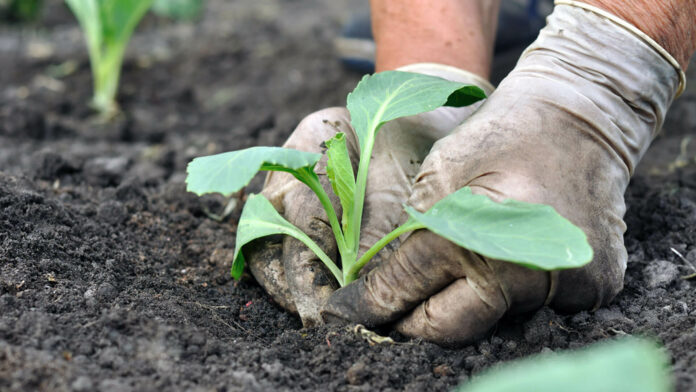Israeli agritech – a brief history
While the story of New Zealand’s earliest Agriculture started with the settlement of Māori, Israel’s Agricultural history starts with the Canaanites and the Israelites over 3,000 years ago. But the modern history of Israeli Agriculture is one of reconstructing the wasteland left by the Ottomans (Turks). Mark Twain describes, in ‘Innocents Abroad’, the land of Israel as
[a] desolate country whose soil is rich enough, but is given over wholly to weeds-a silent mournful expanse….A desolation is here that not even imagination can grace with the pomp of life and action….We never saw a human being on the whole route….There was hardly a tree or a shrub anywhere. Even the olive and the cactus, those fast friends of the worthless soil, had almost deserted the country.Mark Twain
Indeed, Israel remained a largely barren desert until increasing numbers of Jews returned to their indigenous homeland in the 19th and 20th centuries, joining those who had kept a Jewish presence in the land of Israel throughout history. A United Nations Special Committee on [British Mandate] Palestine Report from 1947 witnessed this and stated 1
The Jewish immigrants to [British Mandate] Palestine, who are said to be merely returning to their homeland, are portrayed as having been primarily responsible for developing the economy of the country, for establishing an infant industry, for cultivating theretofore waste lands, for instituting irrigation schemes and for improving the standard of living of Palestine Arabs as well as Jews. The immigrant Jews displace no Arabs, but rather develop areas which otherwise would remain undeveloped.UNSCOP Report
The pioneer Jewish farmers tilled and tended the land under harsh desert conditions with a combination of hard labour, tenacity and science. The Kibbutz system which created communities who worked collectively on Israel’s agricultural revolution built the foundational economy of the modern state of Israel and paved the way for the present knowledge economy.
Israel’s chemists, geologists, botanists and biologists helped converted an infertile, low yielding, and barren land into a world-leading nation whose technologies in sustainability, conservation, cultivation and data gathering and analysis are helping to feed the world. New Zealand has also benefited from Israeli agricultural expertise.
Israeli agritech collaborations with NZ and beyond
If you investigate almost any sector of agriculture in New Zealand today, you can find important contributions being made to local agricultural productivity by Israeli companies. The results of these Israeli-New Zealand collaborations have been sitting on most Kiwis plates, contributing to the local tax base and helping boost NZ’s agritech reputation for many years. For example:
- Kiwi company Vigor has distributed Hazera seeds from Israel since 2009, particularly for Tomato, Capscium, Melons, Lettuce and Onions.
- Zespri uses the Israeli BT9 cold chain technology to improve cold chain management and reduce fruit loss when shipping to key offshore markets.
- Israeli firm Netafim is the largest supplier of irrigation equipment to the NZ horticulture industry. It has also incorporated Lincoln University technology to optimise system design and conserve New Zealand’s precious water supplies.
- Waikato based milk shed technology company, Milfos, have partnered with Israeli high technology sensor company, SCR, to improve livestock monitoring and butter fat grading.
- Waikato Dairy Systems uses Israeli ‘Afimilk’ milk sensor technology from the Israeli Kibbutz Afikim. (http://www.afimilk.com)
- Israeli-based Frutarom owns Tauranga based Taura Natural Ingredients, growing this business and bringing its global supply networks to the distribution of these fruit products and partnering in the development of innovative new ‘Foodtech’.
- CropX, an agricultural Internet of Things (IOT) company focused on ‘saving water and growing more’ is a start up with Kiwi, Israeli, European and American collaborators. It comprises New Zealand soil algorithms from Landcare, Bosch sensor technology combined with Israeli communications and big data technology.
There are a plethora of cutting edge Israeli agritech companies that are now contributing to the challenge of feeding the world. Israeli technology will likely be a important contributor to helping meet current agricultural challenges in New Zealand and around the globe. The New Zealand government is slowly awakening to this, as one of the 117 countries to co-sponsor an Israeli-led resolution on the use of agricultural technology for sustainable development in November, 2017.
Ex Google CEO, Eric Schmidt, has bet big on Israel through Innovation Endeavours, which, via Farm2050, invested in CropX alongside Arama Kukutai’s Finestere VC and Kiwi investors Marcel van den Assum, Fonterra’s ex CIO and Green Button founder, and former MD of high tech for German WestLB, Ira Bing. Mr Bing was also an advisor to the $8BN natural flavours company, Frutarom, on their $100m acquisition of Taura Fruit Processing.
Last year Israel, with a population of approximately 8.5m and less than 1/12th the land area of New Zealand, generated $23b worth of technology exits. Israeli ag-biotech companies raised 2.3% of all global investment. Buoyed by success in Israel, investors are looking for promising technology in New Zealand and elsewhere.
Part two of this focus on Israel agritech involves an interview with Arama Kukutai, founding partner of Finestere Agri and Foodtech VC, about why he invests in Israel, what opportunities exist for Maori, Agri corporates and co operatives, farmers, scientists, researchers and agri-entrepreneurs there and why New Zealand should catch up with Australia and collaborate through direct investment into Israeli companies and most particularly through joint ventures between NZ and Israeli companies.
[FB_IINZcomments]




[…] would be the largest ever investment into an Israeli company by a New Zealand Corporate, surpassing the NZ$100m acquisition by Israeli natural flavours company Frutarom into New Zealand based Taura fruit processors in […]
[…] have previously focussed on links between Israel and New Zealand in the agritech space and featured an interview with Arama Kukutai – a Kiwi at the forefront of some of those […]
Comments are closed.